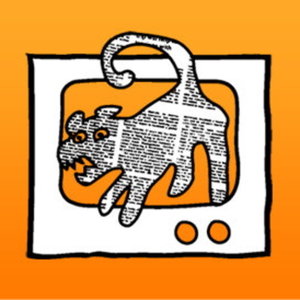Paper Tiger Exhibition at NYU Library
AN INTERVIEW WITH DEE DEE HALLECK FROM PAPER TIGER TELEVISION
March 22, 2012, 6:14 pm
Filed under: Exhibition, New York City, television, Activism | Tags: Lucas Green, Dee Dee Halleck,Paper Tiger Television
Filed under: Exhibition, New York City, television, Activism | Tags: Lucas Green, Dee Dee Halleck,Paper Tiger Television

Citywide aims for progressive programming. We bring many people onto the show who stand to make a change in the world in whatever way they strive to do. This can take place in a number of different ways. Some of our guests are out there trying to improve conditions for less privileged parts of our society as well as spreading a humanitarian message, see our post on Immortal Technique. Some of our guests are actively trying to expand on what the human being can physically be, like recent guest Genesis Breyer P-Orridge. Some of our guests have represented a change itself in being an original artist, like Mykki Blanco who was on last month.
These are people our program has brought on for our audience to check out and have something different to think about. Paper Tiger Television, our feature this week, is another weekly program in the City which doesn’t just discuss the people who are doing progressive work this day, the people on the show itself have been pioneering and innovative since the show’s formation in 1981. PPTV recognizes that there must be an aggressive front to counter a mainstream media that is largely controlled by large corporations. Formed entirely by volunteers who share the concern of what control mass media has over today’s culture, PPTV has been one of the most consistent and driven organizations of people who insist that there be a source of criticism and information outside the commercial world.
I spoke with one of the founders of Paper Tiger Television, Dee Dee Halleck, who took me through some of the early years of the new form of media activism which PPTV represented at the beginning of the 1980s. It is important to note about PPTV that while that not only did they set a new precedent for activists trying to reach a mass audience, they also set an important precedent for the mediums of public cable television which was just emerging at the time. And while programs such as The Coca Crystal Show and Glenn O’Brien’s TV Party (“The TV party that could be a political party”) had already fought to claim the medium as one belonging to the people, PPTV ensured that the medium would balways be used to also speak for the people.
It’s an extraordinary organization that continues to do extraordinary work. Greatest of all is that they are always accepting volunteers. Check out their website and see what you think about the work they do; see if maybe you even want to help. You can also watch many of the programs tand documentaries they have produced. That’s righthere.
PPTV is currently celebrating it’s 30 year anniversary with an exhibition at Fales Library at New York University. This is the exhibition’s website. Here is a video about the 30 year history of Paper Tiger Television-
Dee Dee Halleck also told me about a great new effort of hers to unite activists with similar causes around the world. Check out Deep Dish Waves of Change for more information about that. This program derives from another project of Dee Dee’s calledDeep Dish TV, a similar organization to PPTV, doing with satellite what Paper Tiger did with cable television.
Dee Dee told me some wonderful stories herself. Check out the interview here-
Here is one of the first PPTV programs, Herb Schiller reads the New York Times-
Lucas Green
Labels: activism, Alternative Media, City Wide Radio, community media, DeeDee Halleck, Fales Collection, Herb Schiller, Lucas Green, Mary Feaster, NYU, Paper Tiger TV, Public Access









